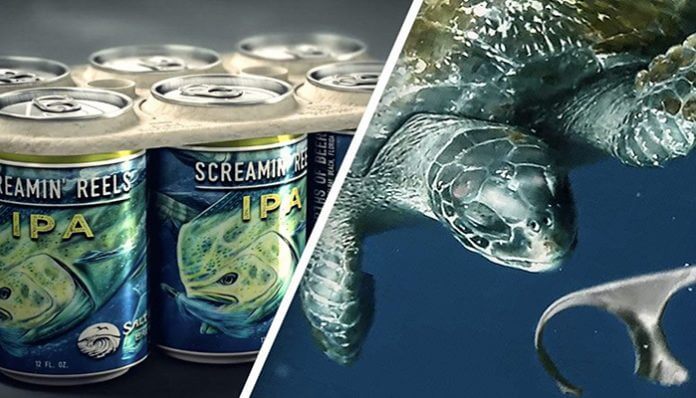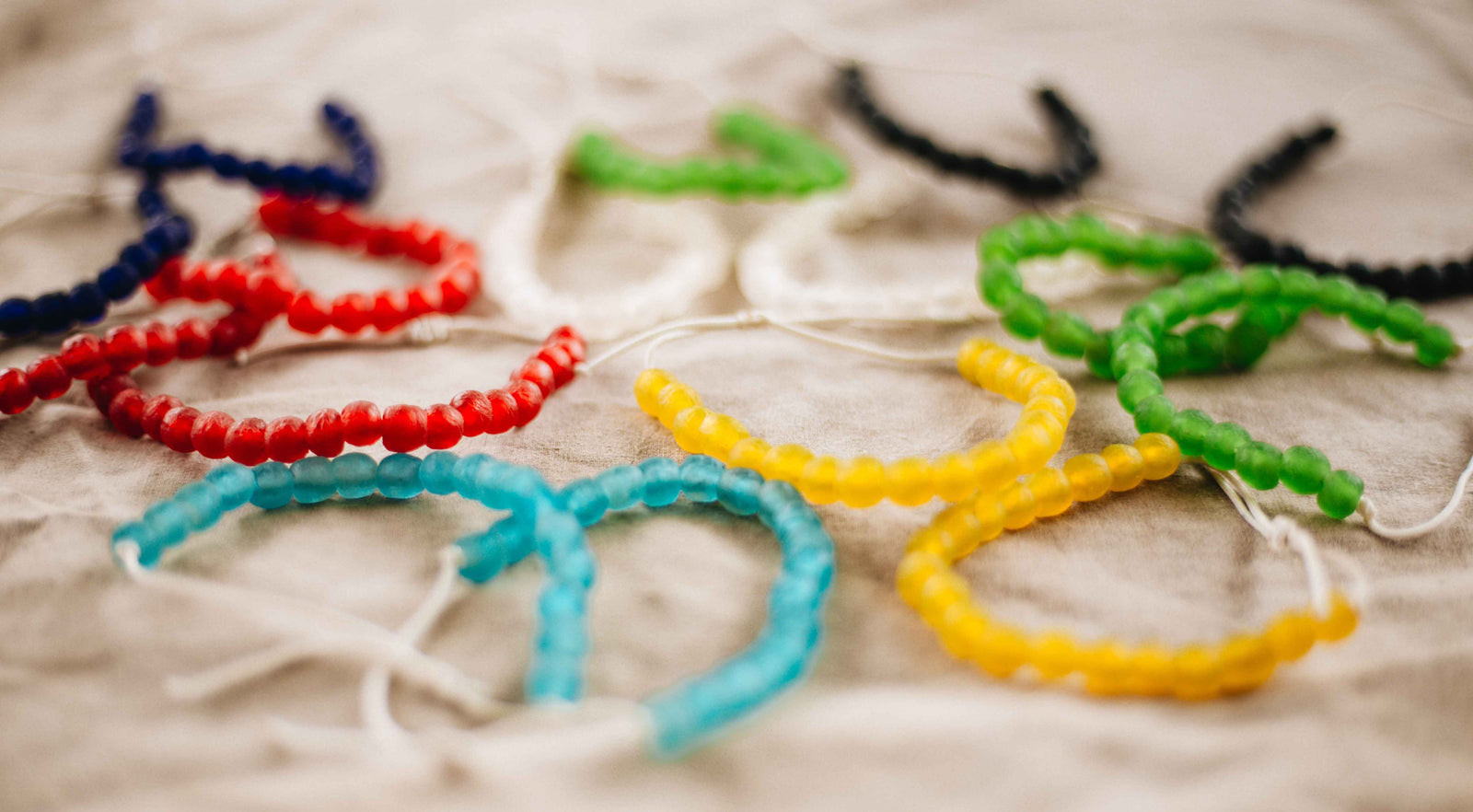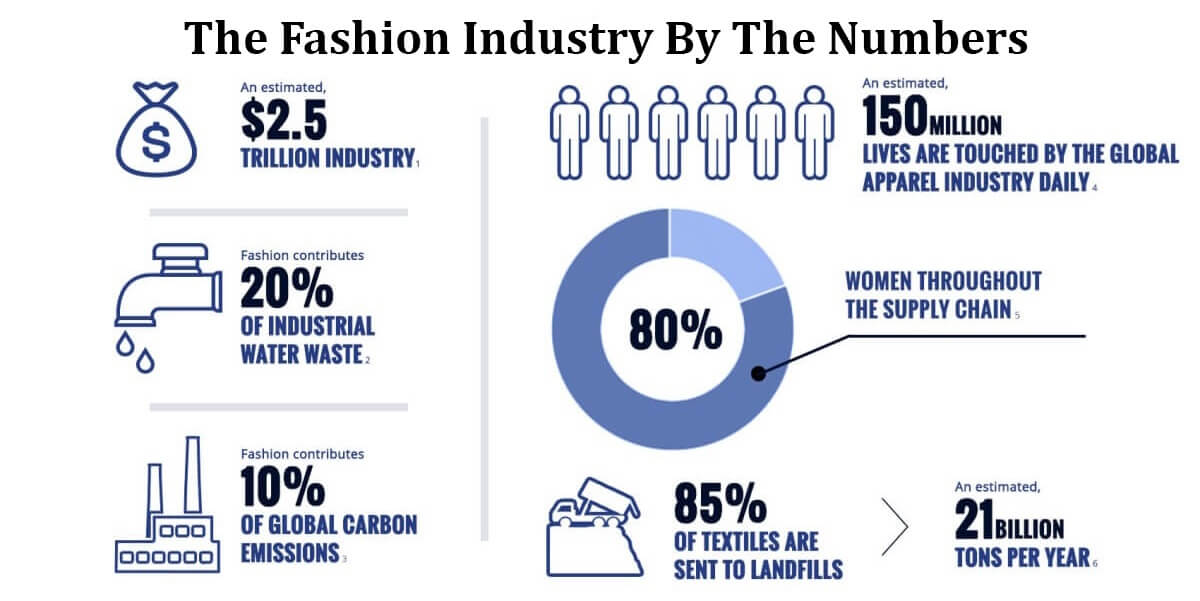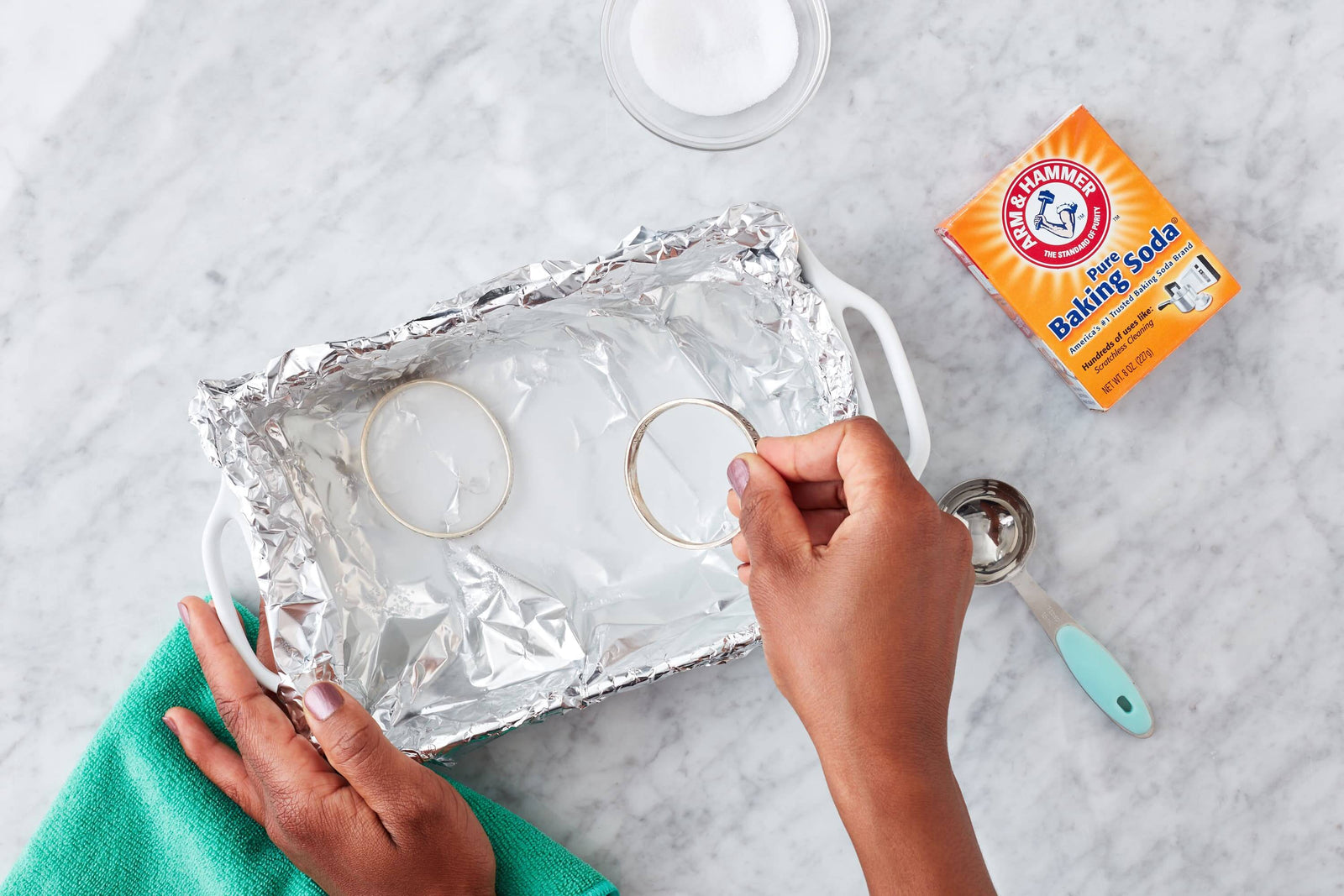Your Cart is Empty
Be the Change You Wish To See In The World!!!
Florida Brewery Creates Six-pack Rings That Feed Sea Turtles Rather Than Killing Them
It’s estimated that over eight million tons of plastic end up into the ocean each year. That’s adding to the 150 million metric tons that’s already circulating in the ocean. As you know, plastic doesn’t break down, so it remains floating in the water for centuries. It’s taking its toll on fish and ocean wildlife, who mistake the plastic pieces for food.
Plastic can be found in over 60% of all seabird species and all sea turtle species. When an animal ingests plastic, it reduces the animal’s fitness, ability to eat and intake nutrients. Essentially, its stomach fills with plastic, and the animal starves to death.
Plastic debris also ensnares some animals, injuring them and tangling them so severely they cannot swim or search for food. Fishing line, cord, and plastic six-pack rings are prime offenders in this area.
One brewery in Florida has found an ingenious way to combat one small piece of this global epidemic. They have developed six-pack rings for their beer that are not made of plastic. Further, they claim to feed turtles instead of killing them.
At Bead the Change, we support ocean cleanup efforts as well as projects that focus on saving the turtles from plastic pollution in our oceans through our save the ocean bracelets and sea turtle bracelets. So, before we learn more about these six-pack rings, let’s discuss the how and why they pose such a threat to sea turtles in particular.
How Six Pack Rings Threaten Ocean Life
While any plastic in the ocean is detrimental to sea life, one of the most commonly discussed items is the six-pack rings used to package soda and beer cans. These rings make their way to the ocean the same way as any plastic. Some are litter left on beaches, while others blow into waterways from landfills. To make matters worse, they are not considered recyclable plastic, which only creates more opportunities for these rings to find their way into the sea.
A Problem Since the 1960s
Six-pack rings have been around since the 1960s, replacing all other holders. Within the first ten years of use, environmentalists identified them as dangerous to marine life. In 1989, legislation passed that required manufacturers of six-pack rings to make them photodegradable, which means they must degrade in the sun within 60 - 120 days.
Note that photodegradable is not the same as biodegradable. Degraded six-pack rings may no longer threaten to ensnare or strangle ocean animals; however, the plastic is still present, poisoning the water and its inhabitants at the microplastic level.
These six-pack rings take time to degrade. Until they do, they can damage marine life. For example, they can tangle the wings of cranes and other sea birds. They can wrap around sea turtle shells and warp them over time. Finally, they can choke seals and other animals that mistake them for food.
Gulf of Mexico
Plastic pollution is a serious issue around the world. However, the Gulf of Mexico has some of the highest concentrations of marine plastic on the planet. In 2018, a volunteer beach cleanup recorded data. Within only three miles of Elmer’s Island, the group gathered over 170 six-pack rings among 4,000 pounds of trash.
Sobering data like this is what prompted a brewery in Florida to come up with a solution to the six-pack ring problem.
Bio-degradable Six-Pack Rings
Saltwater Brewery, which is based in Delray Beach, Florida, believes they have a solution to at least a small part of this environmental crisis. They have developed biodegradable six-pack rings that not only keep plastic out of the ocean but offer wildlife a snack to boot.
Because they are made from barley and wheat, they look and perform like cardboard. The barley and wheat byproducts are compressed into a durable material that can do the job of the traditional plastic six-pack ring. They are compostable when disposed of correctly. Should they be littered, they are biodegradable and won’t harm sea life if ingested.
Saltwater Brewery worked with a startup called Eco Six Pack Rings (E6PR) to develop their product. The project is a collaboration between them, a New York ad agency called We Believers, and a Mexican biodegradable supplier called Entelequia. In addition, select private investors from the beverage packing industry have also contributed.
Their goal is to inspire other breweries and those in the beverage packing industries to get on board with the idea, use the biodegradable rings, and bring down the manufacturing price.

Charity Bracelets to Support Ocean Conservation
At Bead the Change, we support ocean conservation efforts as well as wildlife conservation. One of our most popular items is our Ocean Cleanup Bracelet, which supports The Ocean Cleanup. The Ocean Cleanup is a nonprofit organization dedicated to ridding area known as the Great Pacific Garbage Patch of plastic waste.
Ten percent of every ocean bracelet purchased goes to this organization. This save the ocean bracelet is made of beautiful turquoise glass beads made from recycled glass bottles. Even the cord is made from reclaimed plastic water bottles.
We are also proud to announce that we are expanding our ocean plastic bracelet line to include our soon-to-be-released Sea Turtle Bracelet. We have designed our turtle bracelet in four shades of green beads made from recycled glass bottles. Also, the elastic cord makes the bracelet one-size-fits-all, perfect for men and women alike.
Our new line of bracelets will support the Sea Shepherd Conservation Society, which is an international marine conservation organization. They create direct action campaigns to defend, conserve, and protect wildlife and the ocean from environmental destruction. Look for our Sea Turtle Bracelet in Summer 2020.

Saving the World One Six-Pack at a Time
Plastic pollution in our waterways and ocean is a global crisis that will take the unified efforts of governments and people around the world to overcome. Small companies like Saltwater Brewery and nonprofits like Sea Shepherd are leading the charge.
Biodegradable six-pack rings are a simple, effective solution that can replace one of the more dangerous types of debris being dumped into the ocean. We are also doing our part through our charity bracelets to rid the sea of hazardous plastic waste.
Comments will be approved before showing up.
In short, ethical fashion works toward the social good of society. It takes into account the workers who make the clothing industry possible. This includes everyone from the farmers who grow the fabric to the garment workers who stitch the pieces together. These efforts go beyond the surface we see as consumers. Rather, social good is deeper than the public image. A brand must take care to ensure fair wages, maintain fair trade certifications, and provide healthy working conditions. The ethically responsible brand invests in its people as much as it does its product, if not more so.
Now, you never have to tuck your jewelry away because it needs a deep cleaning. You can keep your jewelry sparkling yourself using eco-friendly cleaning agents you probably already have around the house.
Here are a few cleaning options that don’t involve harsh chemicals.



